Hyundai Kona VS Toyota bZ4X
Hyundai Kona
The Hyundai Kona blends a bold design with a versatile interior, making it a standout choice in the compact SUV market. Its crisp handling and responsive steering provide an engaging driving experience, whether in the city or on the open road. The vehicle also offers a range of features designed to enhance comfort and connectivity, ensuring a pleasurable journey for both driver and passengers.
more informationToyota bZ4X
The Toyota bZ4X represents a bold step forward in the brand's commitment to electric mobility, showcasing an innovative design that merges futuristic aesthetics and functionality. Inside, the spacious cabin is thoughtfully crafted to provide comfort and advanced technology, ensuring a pleasurable driving experience. With its impressive range and sustainable vision, the bZ4X sets a new benchmark for environmentally conscious driving without compromising on performance or style.
more information @ hyundai.news
@ hyundai.news
 @ hyundai.news
@ hyundai.news
 @ hyundai.news
@ hyundai.news
 @ hyundai.news
@ hyundai.news
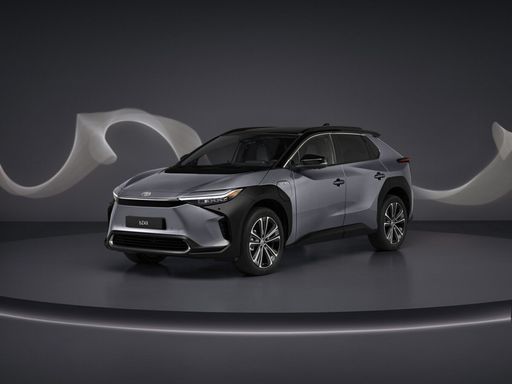 @ Toyota
@ Toyota
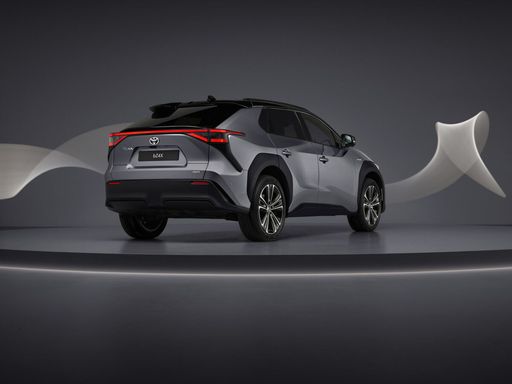 @ Toyota
@ Toyota
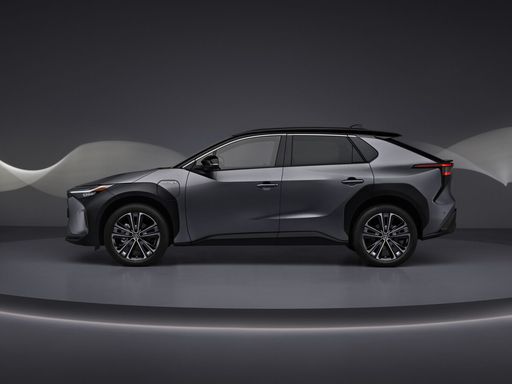 @ Toyota
@ Toyota
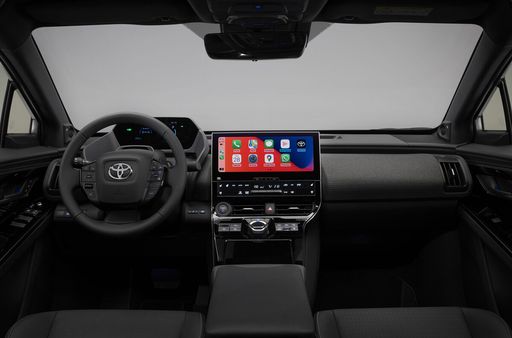 @ Toyota
@ Toyota
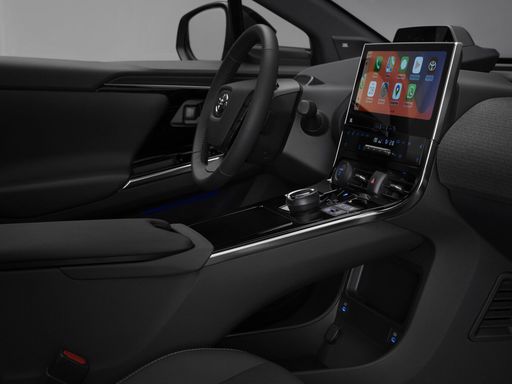 @ Toyota
@ Toyota
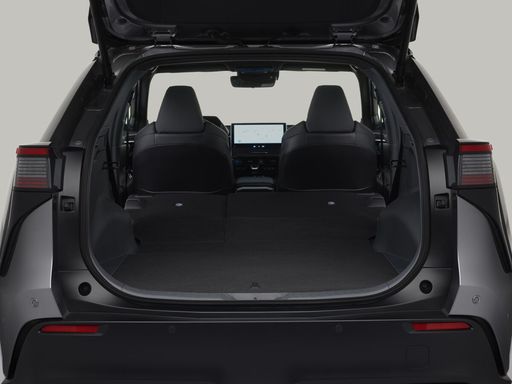 @ Toyota
@ Toyota
Costs and Consumption |
|
|---|---|
|
Price
about 24400 - 44800
$
|
Price
about 39700 - 49000
$
|
|
Consumption L/100km
4.5 - 6.7
L
|
Consumption L/100km
-
|
|
Consumption kWh/100km
14.6 - 16.8
kWh
|
Consumption kWh/100km
14.4 - 16.2
kWh
|
|
Electric Range
377 - 514
km
|
Electric Range
461 - 513
km
|
|
Battery Capacity
1.3 - 65.4
kWh
|
Battery Capacity
-
|
|
co2
128, 103, 141, 152, 0
g/km
|
co2
0
g/km
|
|
Fuel tank capacity
38 - 47
L
|
Fuel tank capacity
-
|
Dimensions and Body |
|
|
Body Type
SUV
|
Body Type
SUV
|
|
Seats
5
|
Seats
5
|
|
Doors
5
|
Doors
5
|
|
Curb weight
1370 - 1773
kg
|
Curb weight
1970 - 2085
kg
|
|
Trunk capacity
466
L
|
Trunk capacity
452
L
|
|
Length
4350 - 4385
mm
|
Length
4690
mm
|
|
Width
1825
mm
|
Width
1860
mm
|
|
Height
1580 - 1585
mm
|
Height
1600
mm
|
|
Payload
420 - 490
kg
|
Payload
465 - 495
kg
|
Engine and Performance |
|
|
Engine Type
Petrol, Full Hybrid, Electric
|
Engine Type
Electric
|
|
Transmission
Manuel, Automatic
|
Transmission
Automatic
|
|
Transmission Detail
Manual Gearbox, Automat. Schaltgetriebe (Doppelkupplung), Reduction Gearbox
|
Transmission Detail
Reduction Gearbox
|
|
Drive Type
Front-Wheel Drive, All-Wheel Drive
|
Drive Type
Front-Wheel Drive, All-Wheel Drive
|
|
Power HP
100 - 218
HP
|
Power HP
204 - 218
HP
|
|
Acceleration 0-100km/h
7.8 - 13.3
s
|
Acceleration 0-100km/h
6.9 - 7.5
s
|
|
Max Speed
162 - 208
km/h
|
Max Speed
160
km/h
|
|
Torque
200 - 265
Nm
|
Torque
265 - 336
Nm
|
|
Number of Cylinders
3 - 4
|
Number of Cylinders
-
|
|
Power kW
74 - 160
kW
|
Power kW
150 - 160
kW
|
|
Engine capacity
998 - 1598
cm3
|
Engine capacity
-
|
|
Top speed
162 - 208
km/h
|
Top speed
160
km/h
|
General |
|
|
Model Year
2024
|
Model Year
2024
|
|
CO2 Efficiency Class
D, C, E, A
|
CO2 Efficiency Class
A
|
|
Brand
Hyundai
|
Brand
Toyota
|
Hyundai Kona
The Hyundai Kona: A Comprehensive Overview
The Hyundai Kona has established itself as a standout in the compact SUV segment, blending innovation with performance and style. As the automotive world moves towards more sustainable and efficient options, the Kona offers a variety of powertrains, from traditional petrol engines to full hybrids and all-electric models.
Powertrain Options and Performance
The Hyundai Kona's powertrain choices cater to a wide range of preferences. For petrol enthusiasts, the Kona offers a 1.0L T-GDI engine, delivering 100 PS, and a more robust 1.6L T-GDI variant with up to 170 PS. Those looking for efficiency without sacrificing power can consider the full hybrid model, offering 129 PS and an impressive consumption of 4.5 L/100km.
For a greener option, the all-electric Kona provides a compelling case. With battery capacities of up to 65.4 kWh, the electric Kona offers power outputs of 156 to 218 PS, and efficiencies as low as 14.6 kWh/100km, enabling an electric range of up to 513 km.
Technical Specifications and Innovations
Built on a robust platform, the Kona delivers versatility and reliability. With a choice between manual or dual-clutch automatic gearboxes, along with options for front-wheel or all-wheel drive, the Kona ensures a tailored driving experience. The handling is enhanced by the car's lightweight construction, balancing a 1370 to 1773 kg curb weight with dynamic performance.
The Kona's design doesn't compromise cargo space for style; it offers a generous 466 L boot capacity. With a relatively compact body, measuring 4350 to 4385 mm in length, the Kona easily navigates urban environments while still commanding a strong road presence with its 1825 mm width.
Efficiency and Eco-Friendliness
Hyundai is committed to reducing emissions, as evidenced by the Kona's CO2 efficiency ratings, which range from class A for electric models to class D for some higher-performance petrol variants. The focus on reducing environmental impact without sacrificing driving pleasure is notable throughout the Kona range.
Costing and Value
The Hyundai Kona offers commendable value for money. Pricing starts at €26,400 and reaches up to €50,690, depending on the chosen configuration. The monthly running costs range from €956 to €1090, with a cost per kilometre of 38.3 to 43.6 cents, making it a competitive option in its class.
Conclusion: Modern, Efficient, and Versatile
The Hyundai Kona stands as a testament to Hyundai's commitment to innovation, efficiency, and practicality. Whether you are inclined towards a traditional combustion engine, a hybrid for a balance of power and efficiency, or a full electric model for maximum eco-friendliness, the Kona provides a tailored solution for each unique driver preference.
Toyota bZ4X
A New Era with the All-Electric Toyota bZ4X
The Toyota bZ4X is a groundbreaking addition to the world of electric vehicles. This 2024 SUV promises to combine cutting-edge technology, an environmentally friendly powertrain, and exquisite design, representing Toyota's ambitious journey towards a sustainable future. Let's delve into its technical highlights and revolutionary innovations.
Performance and Efficiency
The Toyota bZ4X is available with two powertrain options: front-wheel drive and all-wheel drive. The front-wheel-drive model boasts a power output of 204 PS (150 kW), while the all-wheel-drive variant offers slightly more power at 218 PS (160 kW). Both setups utilise an efficient reduction gear transmission, allowing for smooth acceleration and optimal power delivery.
In terms of energy consumption, the bZ4X demonstrates impressive efficiency. The front-wheel-drive variants consume 14.4 kWh/100 km, whereas the all-wheel-drive versions utilise 16.2 kWh/100 km. This efficiency translates to an electric range of 461 to 513 km, positioning the bZ4X as a formidable competitor in the electric SUV market.
Innovative Design and Comfort
Emphasising design and passenger comfort, the Toyota bZ4X presents a spacious interior that accommodates five passengers comfortably. With a length of 4690 mm, a width of 1860 mm, and a height of 1600 mm, the bZ4X provides generous headroom and legroom, along with a practical boot capacity of 452 litres.
Available in multiple trim levels, including Comfort, Lounge, and Team Deutschland, each model offers a host of advanced features designed to enhance the driving experience. From intuitive infotainment systems to luxurious upholstery, the bZ4X prioritises driver satisfaction and convenience.
Technological Advancements
The Toyota bZ4X is equipped with state-of-the-art technology that enhances both safety and driving pleasure. It includes a full suite of driver assistance systems and cutting-edge connectivity features. Toyota's dedication to safety is further exemplified by the car's superior build quality and a CO2-efficiency class of A, ensuring zero emissions during operation.
Ready for the Future
As environmental concerns continue to shape the automotive industry, the Toyota bZ4X stands out as a remarkable response to these challenges. With pricing ranging from €42,900 to €52,990, this model ensures that eco-conscious consumers do not have to compromise on performance, technology, or style.
The Toyota bZ4X not only embodies the brand’s commitment to a sustainable future but also sets a new benchmark for what electric SUVs can achieve. Its combination of robust performance, innovative design, and environmental efficiency signifies a promising step forward in the realm of electric mobility.
